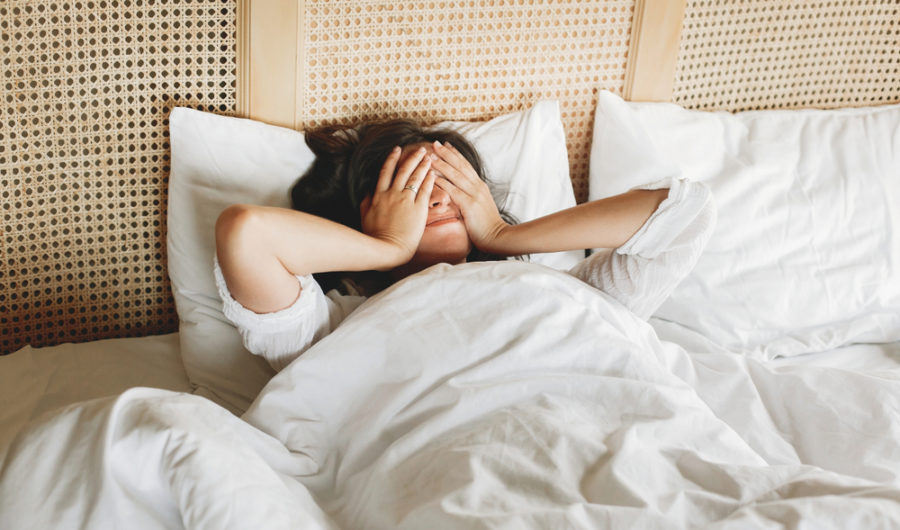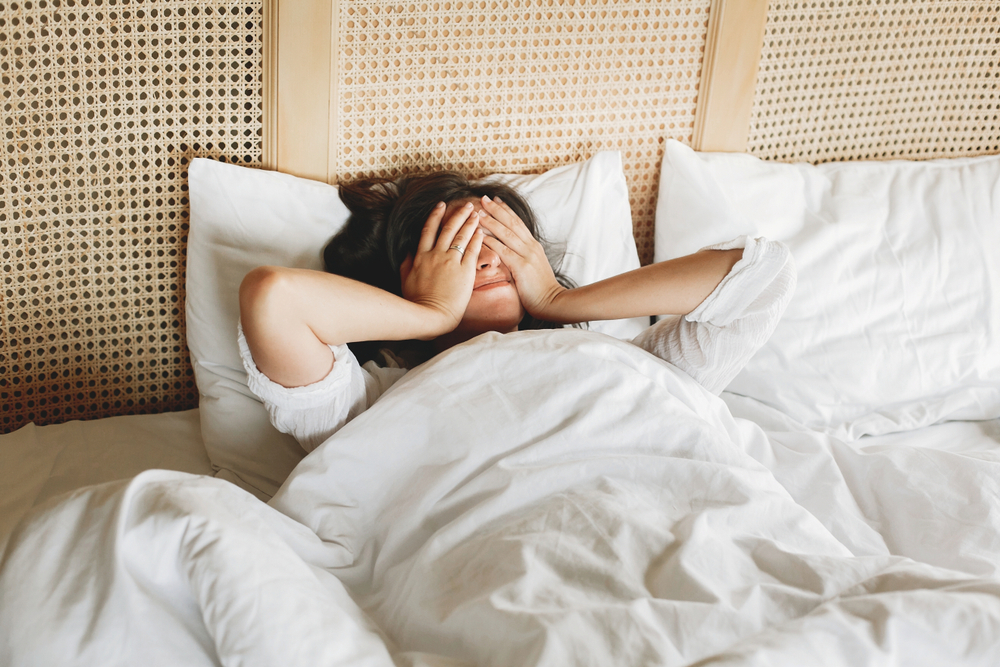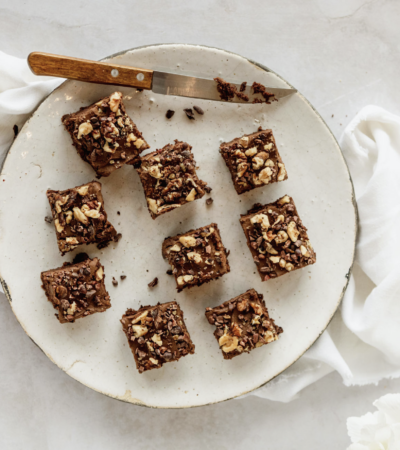Blaming your sleepless nights on stress and anxiety? It’s probably not a bad guess as those best buds are often culprits for disrupting your sleep but what if it could be something else? Something you’ve never even thought about? Below nutritionist, Flora Crichton who specialises in sleep and hormonal imbalances, reveals why you may want to pay attention to your blood sugar levels if you’re having trouble sleeping and shares the signs of imbalance we can look out for plus some very handy tips to keep our levels optimal.
Blood sugars connection to sleep
Usually, when blood sugars drop low, the body releases cortisol which is our body’s main stress hormone. Cortisol is responsible for raising blood sugar levels when they drop too low and signals for glucose to be broken down from the muscles or the liver and released into the bloodstream, to rebalance blood sugar levels. However, if your blood sugar levels are imbalanced, your body could be repeating this process much more regularly than it should.
For example, if you have had a really high carbohydrate meal at night, maybe alongside some alcohol, your blood sugars will increase rapidly (refined carbohydrates break down into glucose). This spike in sugars will be followed by a sharp decline a few hours later when you are likely to be fast asleep. Due to this crash in blood sugars, the body releases cortisol, along with our ‘fight or flight’ hormone, adrenaline, into the bloodstream. Naturally, this causes us to wake up in the early hours of the morning (3 or 4am), feeling anxious, alert, and possibly nauseous upon wakening.
There have even been cases of patients put on anti-anxiety medication, that actually have chronic imbalanced blood sugars and who suffered from awful sleep!
Symptoms of blood sugar imbalance:
– Cravings for sweets between meals & at the end of a meal
– Irritability or feeling light-headed, if meals are missed
– Not feeling hungry for breakfast
– Dependency on coffee and sugar for energy
– Waking in the middle of the night (around 3 or 4 am), feeling alert or anxious – Waist girth equal to or larger than hip girth
– Difficulty losing weight
– Frequent urination
– Increased appetite and thirst
– Feeling shaky or jittery
– Feeling agitated and nervous
– Poor memory & forgetfulness
Eating to balance blood sugar
If you resonate with the above, I would most definitely suggest to start with your diet and make some adjustments. I advise all my patients to start each day with a balanced breakfast of predominantly protein, carbs and fats. Ultimately, sufficient protein at each meal will reduce cravings and unnecessary hunger. We need around 1g of protein for every kg of our body weight.
Balancing blood sugar through your diet can be challenging, due to intense cravings and the addictive nature of certain foods. Stick to these tips to ensure an easier ride!
1. Eat a low carbohydrate breakfast with high-quality fats and proteins. When you wake up in the morning, you have gone a long time without eating. Your cortisol hormone is at its highest. Make sure you eat within one hour of waking up.
Abnormal blood sugar levels may cause you to wake up with no appetite or feeling nauseous. That can often be a side effect of your fight or flight hormones, that were released during the night as mentioned earlier. Try to eat some protein here e.g. a couple of boiled eggs or a handful of nuts. After a few days, your nausea should ease. In just 2-3 days of stabilising your blood sugar, you should no longer wake up feeling nauseous.
2. If you are feeling lightheaded or irritable between meals, eat a high protein snack. Eggs, nuts, seeds, lean meat, a low fruit green smoothie with a scoop of your favourite protein powder, a healthy protein bar or I love @Nudiesnacks crispy lentils. You will find you can go longer between meals when your blood sugar levels start to balance out.
3. A high carb diet is at the root of blood sugar imbalances. If you feel sleepy or crave sugar after you eat, you have likely eaten too many carbohydrates. Your plate should be about 25% protein, 25% carbs, 10% fat and 40% vegetables. Of course, we mustn’t discount carbs, they are an important part of our diets and definitely should not be excluded. Here are some of my favourite options for carbs…
Choose wholemeal/rye bread, brown rice, quinoa, buckwheat, sweet potatoes, wholewheat pasta. Health shops have really nice alternatives to pasta also e.g. chickpea pasta, buckwheat noodles. Whole grains contain more vitamins, minerals and fibre, so they usually cause smaller spikes in our blood sugar.
Many symptoms of blood sugar imbalance, such as sleep issues, irritability and energy crashes, start to diminish on a lower carbohydrate diet. Unidentified food intolerances can also create sugar cravings or fatigue after meals, so it’s important to find out if this is an issue for you by speaking with a nutritionist.
4. Try to avoid sugary or starchy foods before bed. This is one of the worst things someone with imbalanced blood sugars can do. Your blood sugar will dip during the night when you are asleep and it is likely that adrenaline and cortisol will be released during the night, creating restless sleep or that 3am wake up, feeling wide awake and/or anxious.
If you feel you need further support with blood sugar, cravings and energy levels, I offer free 15-minute discovery calls. We can discuss whether a nutritional therapy appointment might be right for you. Head to my website here for more information or reach out to me on Instagram @floracrichtonnutrition. I also specialise in hormonal balance; menstrual irregularities, digestive issues and weight loss.














